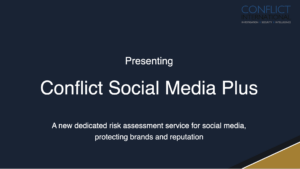
Artificial Intelligence (AI) is revolutionizing numerous industries, and private investigation services are no exception. Traditionally, private investigators relied heavily on manual methods, such as stakeouts, interviews, and poring over public records. However, AI technologies like machine learning, natural language processing, and computer vision are transforming these processes. AI can analyze vast amounts of data quickly and accurately, identifying patterns and connections that might take a human investigator weeks or months to discover. For instance, AI-powered tools can scan social media, public records, and other digital footprints to compile comprehensive profiles on subjects of interest. This not only speeds up investigations but also increases their accuracy and depth. The catch, however, is that a human is needed to review the information that has been provided by AI.
Enhanced Surveillance and Data Analysis
One of the most significant potential impacts of AI in private investigation is in surveillance. AI-powered cameras and facial recognition software have the ability to monitor and identify individuals in real-time, vastly improving the efficiency of surveillance operations. This technology is relatively new and not readily available to the average investigator. These systems can detect unusual behavior, track movements across multiple locations, and even predict potential actions based on past behavior patterns. Additionally, AI can assist in analyzing video footage, extracting relevant segments, and tagging important events. This reduces the workload for human investigators, allowing them to focus on more complex aspects of the investigation that require human intuition and experience. Again, the probability is that AI will assist the human investigator in efficiency for Surveillance and Data analysis.
The Impact on Job Security
While AI offers numerous benefits to private investigation services, it also raises concerns about job security within the industry. The automation of data analysis and surveillance tasks could potentially reduce the need for human investigators. For example, tasks that once required a team of investigators might now be handled by a single person with AI assistance. This could lead to job displacement for some, especially those whose roles are heavily focused on routine data gathering and analysis. However, AI is also creating new opportunities, such as roles in managing and interpreting AI outputs, maintaining AI systems, and integrating AI findings with traditional investigative techniques. The reality is that AI will help investigators who embrace how to use it. The likelihood is that it will not replace investigators. AI cannot replace tasks that require social skills like interviewing. It will not replace assignments that require travel to a specific location.

Adapting to the New Landscape
To ensure job security in the age of AI, private investigators will need to adapt by developing new skills that complement AI technologies. Training in AI tools, data analysis, and cyber forensics will become increasingly important. Moreover, the human elements of private investigation—such as critical thinking, ethical judgment, and interpersonal skills—remain irreplaceable. By leveraging AI to handle routine tasks, investigators can dedicate more time to these areas, ultimately enhancing the quality of their work. The future of private investigation will likely involve a symbiotic relationship between AI and human investigators, where each complements the other to achieve better outcomes.
In conclusion, while AI is transforming private investigation services by increasing efficiency and accuracy, it also presents small challenges for job security. By embracing AI and enhancing their own skill sets, private investigators can navigate this new landscape and continue to provide valuable services in an increasingly digital world.
Matthew Spaier is the President of Satellite Investigations in New York City, NY and is the President of the Associated Licensed Detectives of New York State. He is also the Vice President of Business Development for Conflict International. Matthew hosts PI-Perspectives podcast and is the owner of Investigators-Toolbox.com


